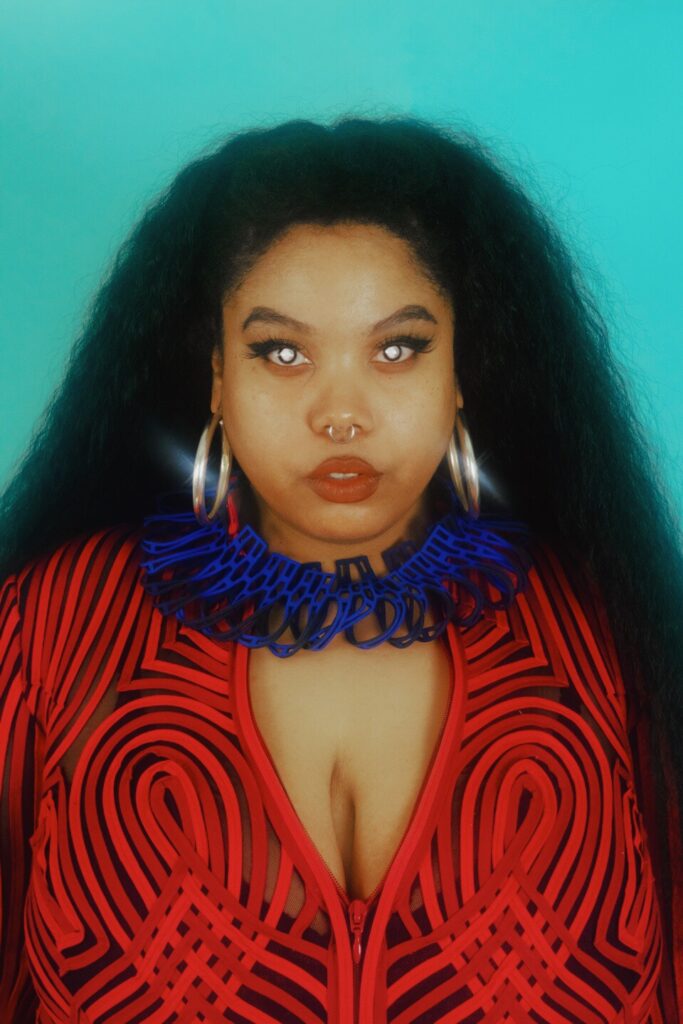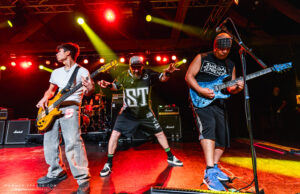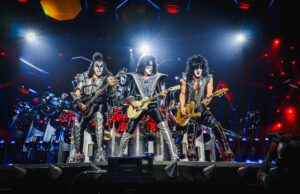Guayaba’s ‘Fantasmagoría’: The Next Level of Seattle Rap

Hold on to your headphones, listener. It’s the end of another year – but before 2019 calls it a day, Seattle’s beloved trap-goth mystic, Guayaba, has something to lay on you. Before any end-of-year listicles are read, before anyone closes this year’s chapter on new music, may you invite into your ears their newest record; the utterly dominating Fantasmagoría. The album is a jaw-dropping journey, a potent transformation from heavy, housey trap-hop to hypnotic contemporary R&B, with experimental flair. Fantasmagoría is, simply put, a next-level record; it’s an example of the high quality and detail any local artist should aspire to with a new release.
Guayaba encouraged me to experience Fantasmagoría all in one sitting, with no breaks if possible. As a fan of full albums (compared to individual songs, outside of an album context), I am eager to digest whole works in one sitting; still, I took heed of these words and bore the idea specifically in mind while listening. In truth, this request is important and merited when experiencing this record – Fantasmagoría has a traceable direction, a pure cohesiveness, and the intense focus from which it was surely born is palpable. It’s a careful arc through unrelenting hip-hop to Latinx-rooted R&B, weaving a path through trap, house, and spoken word along the way (“And Thus, I Remain Crepuscular…” specifically noted here).
The precedent is set from the first track (the instrumental “Guayaba Presents….Fastasmagoría”), with choral singing and organ that wouldn’t be out of place, nay – belongs at a funeral. A hazy, mystical tone surrounds each song; the feeling is mournful, yet also sinister, and these emotional areas are frequently revisited throughout the record. Even the more romantic moments on Fantasmagoría are undercut by darkness – take for example the final track, “Triste Domingo” (a cover of “Gloomy Sunday“), where delicate passion and melancholy align perfectly. The warmth of the acoustic guitar, the swaying vocal harmonies, all sweetly surrounding the listener – as Guayaba spells out their own death. Amazingly, this cover rendition ties back to the record very well – a study which compliments the rest of the original work on Fantasmagoría.
Unending praise is due to all the musicians that were brought together to make this record (Lori Goldston on cello, Michaud Savage on guitar/vocals, and two local artists on beats – Wolftone and Fish Narc). The live performances and arrangements, the intricate and captivating rhythms, samples and production: everything contributed here makes this record a sheer pleasure to listen to. The deep bass hits to the core, whisking the listener away on a winding journey, led by Guayaba’s brooding raps and pained-yet-passionate vocals. Adept vocal layering is on display here as well; melodically precise doubling of the rap verses and full-on explorations of Guayaba’s bold, fluttering vocal ability prove Guayaba’s excellence across the spectrum of vocal delivery (see “D.U.M.E.” and “Sanguijuela” for this writer’s favorite examples).
With short notice, and at a time when many music publications and listeners check out from this year and prepare for the next, Guayaba’s Fantasmagoría is a reminder to pay homage to November (and December). If you don’t, dear listener, you might just risk missing one of the best releases of the year. Guayaba’s next Seattle show is on January 26th at The Sunset, with Izumi, Nic Masangkay, and Emma Lee Toyoda. Tickets can be purchased here. Check out the album on Bandcamp:





0 comments